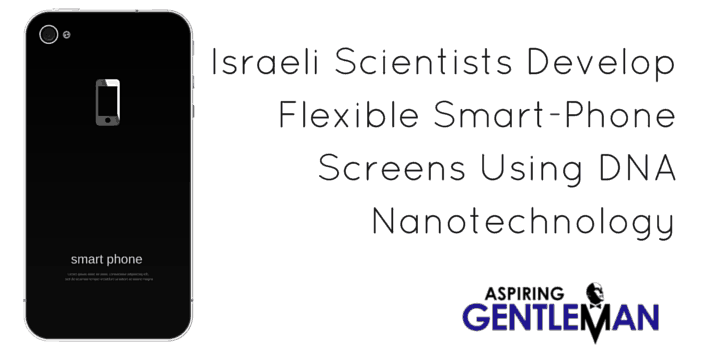

Scientists are unceasingly looking for innovative technology that will allow them created flexible electronic screens that feel and look like paper reported by Jewish News Site. Israeli researchers claim they have found a way to develop flexible and thin screens that can be easily folded or rolled up like a usual paper.
Researchers of the Tel Aviv University suggest that flexible, ultra-thin screens could be produced with the help of DNA nanotechnology. A series of experiments show that DNA peptides can give digital screens a great level of flexibility. Thus, structure of the DNA peptides can be used for the development of super-slim, transparent and bendable screens for smartphones, laptops, tablets, TVs and other devices.

A team of Israeli researchers have synthesized molecular building blocks which are able to self-assemble into ordered structures. To put it simply, they have created a molecular backbone of a bendable, ultra-thin digital screen. The invention of molecular building blocks can be used for the development of new-generation materials, having properties that are uncharacteristic of inorganic materials, such as metal or plastic.
When talking about their invention, professor Ehud Gazit said that one layer of their lightweight, flexible and eco-friendly material, emits the same range of light that is required by several layers of current materials. Thus, the use of one-layer materials will significantly reduce production costs which, in turn, will result in lower prices for the consumers.
Such invention will bring joy to smartphone users, who want having a little bit more than a traditional pocket-sized display. Currently, even the largest smartphone displays do not allow achieving the best reading experience. Having a device with a big screen which you can fold and put into the bag is especially beneficial for users who love reading or watching videos on the go. Since the number of people using smartphones to view media is quickly surging, the invention of bendable screens is relevant to these days as never before.
The development of new technology is still in its early stages. At current, Israeli scientists are working on the development of the new-generation screen prototype and negotiate with the largest companies about manufacturing of flexible screens. A large-scale utilisation of flexible screen technology will propel the development and use of mobile devices to a completely new level.



